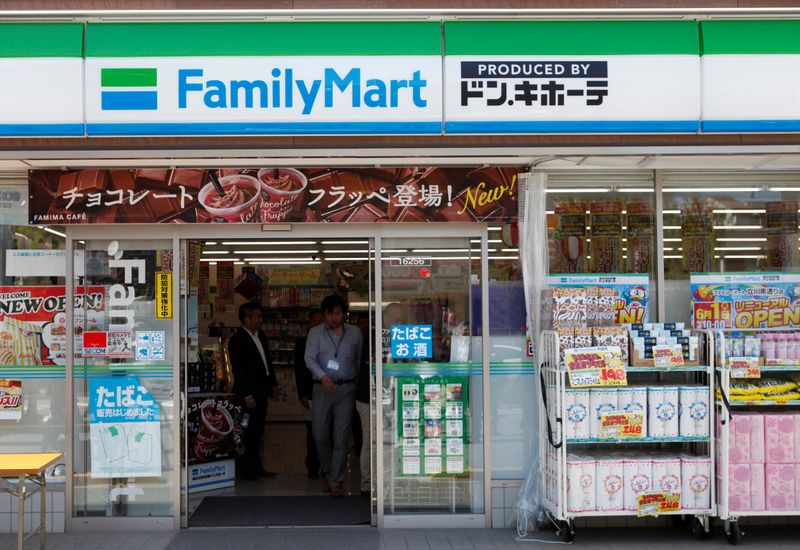By Katya Golubkova and Yuka Obayashi
TOKYO (Reuters) – Japanese trading house Itochu posted a 6% rise in first-half profit on Wednesday, as a rise in food, textile and supermarket chain FamilyMart offset the impact of lower prices on its metals and energy segments.
Japanese trading houses have expanded their retail presence from food to textiles and convenience stores as diversified portfolios help them limit the risks of commodity price swings, which became especially apparent after the pandemic and Russia’s war in Ukraine.
For the six months to the end of September, net profit grew to 438.4 billion yen ($2.9 billion) from 412.9 billion yen a year earlier.
Itochu kept its profit forecast for the year through March unchanged at 880 billion yen, of which 24% or 213 billion yen is expected from food, textiles and the 8th division, which includes FamilyMart, overtaking the metals division, usually the largest . a forecast of 200 billion yen.
The metal’s profit forecast was cut by 40 billion yen due to weaker iron ore prices and reduced coking coal production from Australia and the United States.
At the same time, however, the trading company has decided to increase its exposure to the metals sector.
In a separate statement, it said on Wednesday that it has agreed with Brazilian steelmaker Companhia Siderúrgica Nacional (NYSE:) (CSN) to buy a 10.74% stake in CSN’s iron ore unit. CSN Mineracao (BVMF:) (CM), for approximately 4.42 billion reals ($769 million).
The deal will increase Itochu’s stake in CM, Brazil’s largest iron ore producer and distributor, from 7.15% to 17.89%.
Itochu shares rose 1.68% on Wednesday, against a 1.94% rise in the broader TOPIX index ().
“Our goal is to secure high-quality iron ore, an essential raw material for making low-carbon steel,” Itochu President Keita Ishii told a news conference.
Production at the Longview coking coal mine in the US, in which Itochu owns a 25% stake, was affected by the collapse of the Baltimore Bridge, which disrupted shipping, and a mine fire in June that led to a temporary suspension, according to a spokesman.
Itochu fully acquired FamilyMart following a bid in 2020 and runs more than 16,000 stores across Japan, supplying it with ingredients for its highly popular Famichiki fried chicken, as well as basic items also sold by FamilyMart, such as bananas, eggs and socks.
Other trading houses have also continued to expand into the food sector.

In October, Marubeni started selling salmon from a farm operated by its Norwegian partner near Mount Fuji, adding to the fishing business that its rivals Mitsubishi and Mitsui also have a presence in.
($1 = 153.9900 yen)


